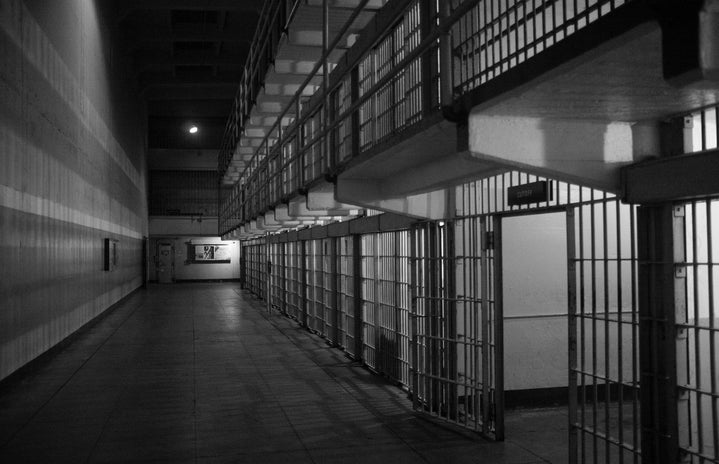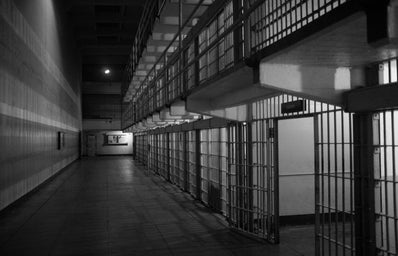Trigger Warning: This story features details about a murder and investigation.
Any crime or court junkie has likely come across the podcast that has won every major award for broadcasting and has been stirring up debate nationwide about one man’s criminal case ever since its release in 2014. Adnan Syed was found guilty of murder in 2000 and sentenced to life in prison. Monday, he walked out of the courthouse after 23 years behind bars for a murder he claimed he did not commit, and it might have to do with a not-so-little podcast called Serial.
Syed’s case came into the spotlight thanks to Sarah Koenig, a New York City native and public radio personality that created Serial in 2013 as a spinoff to the radio program This American Life. Koenig hosted the entirety of the podcast’s first season which investigated Syed’s criminal trial and potential innocence of his conviction for the murder of Hae Min Lee. According to the podcast’s website, Syed had exhausted every legal avenue for relief to no avail, but everything changed when a prosecutor in the Baltimore State’s Attorney’s office came across two handwritten notes in his case file. Koenig began with the investigation into these two notes and what they meant for his case.
Both Adnan Masud Syed and Hae Min Lee had attended Woodlawn High School in Baltimore, Maryland. The two had dated for some time in secret due to their families’ strict beliefs on dating before Lee had broken it off and began dating a coworker. Lee then went missing on Jan. 13, 1999, sparking a search that turned into a full-blown murder investigation when her body was found on Feb. 9 in Leakin Park by a passerby with an odd explanation.
Police were then given an anonymous phone call on Feb. 12 to look into Syed’s alibi the day of her disappearance. A friend of Syed’s, Jay Wilds, also told the police that Syed had actually talked to him about killing his ex-girlfriend and that he had helped Syed bury Lee’s body after he killed her in a Best Buy parking lot after school. This quickly became the narrative police and investigators locked onto. After the police applied for Syed’s cell phone records on Feb. 16, they arrested him twelve days later for first-degree murder.
Originally, Syed’s trial began in December of 1999 but resulted in a mistrial after Jurors accidentally overheard a dispute between Syed’s attorney, Cristina Gutierrez, and the judge. His second trial occurred in January and lasted six weeks before the jury decided on Syed’s guilt for first-degree murder, kidnapping, false imprisonment and robbery.
Koenig’s podcast followed her personal investigation including extensive research into the lives of anyone involved with Syed’s case and the murder that occurred 15 years prior. The podcast featured voices from a handful of witnesses, family members, investigators and others who knew anything that could help the viewers produce their own opinion on whether Syed actually committed the crime. Syed himself spoke to Koenig and told his story through the podcast from behind a prison phone. Koenig especially gained acclaim for looking into the handwritten notes found in Syed’s case file from potential witnesses that were never contacted and ended up being crucial to his case and eventually, his release.
On Sept. 19, 2022, Syed’s murder conviction was overturned. According to the Baltimore Sun, Baltimore Circuit Judge Melissa Phinn ordered Syed to be placed on home detention with a GPS monitor while they await to see if the State’s prosecutors will drop his charges or if he will be tried again within the next 30 days. The ruling came about because of a year-long investigation that showed authorities were aware of at least one alternative suspect before Syed’s trial and withheld the information from his defense team, a situation known as a Brady violation.
While the courtroom audience apparently erupted once the judge adjourned, not everyone is happy about the ruling. Maryland Attorney General Brian Frosh’s office represented the state for Syed’s appeals and released a statement that there was not a Brady violation and said her office was not consulted about any of the alleged violations. Additionally, according to various sources including People Magazine and the Boston Sun, Hae Min Lee’s brother, Young Lee, made a statement to the court via Zoom while asking for the judge to postpone the hearing.
“This is not a podcast for me. It’s real life that will never end,” said Lee, emphasizing the nightmare his family has been undergoing for over 20 years.
While this may not be the end of Syed’s case, it is a huge moment for him and his supporters. For his entire story, including a new episode on his release, check out the podcast that he might owe his fame and freedom, Serial.
Want to see more HCFSU? Be sure to like us on Facebook and follow us on Instagram, Twitter, TikTok, YouTube and Pinterest!


